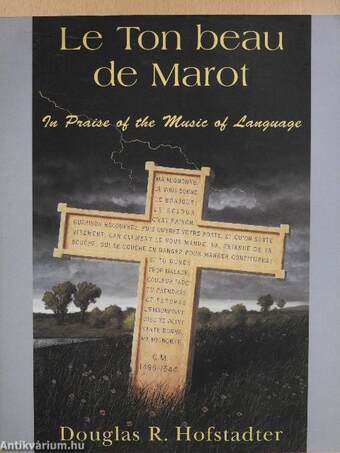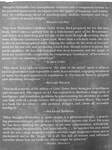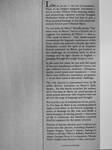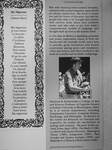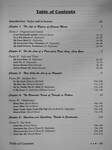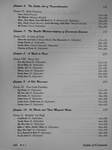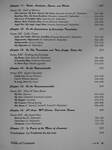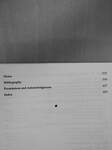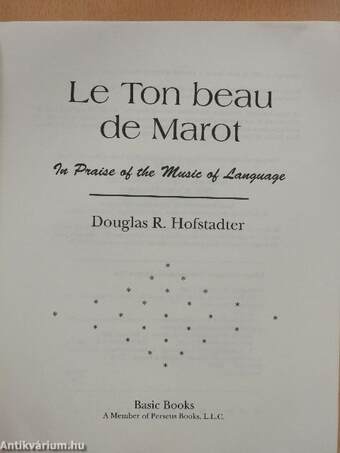1.062.898
kiadvánnyal nyújtjuk Magyarország legnagyobb antikvár könyv-kínálatát

VISSZA
A TETEJÉRE
JAVASLATOKÉszre-
vételek
Le Ton beau de Marot
| Kiadó: | Basic Books |
|---|---|
| Kiadás helye: | New York |
| Kiadás éve: | |
| Kötés típusa: | Ragasztott papírkötés |
| Oldalszám: | 632 oldal |
| Sorozatcím: | |
| Kötetszám: | |
| Nyelv: | Angol |
| Méret: | 24 cm x 19 cm |
| ISBN: | 0-465-08645-4 |
naponta értesítjük a beérkező friss
kiadványokról
naponta értesítjük a beérkező friss
kiadványokról
Fülszöveg
"Douglas Hofstadter has triumphantly returned with a companion volume to his youthful masterwork, an inquiry into the nature of language and transla-tion, an exhilarating blend of antobiography, analysis, wordplay and elegy a source of myriad delights."
—Washington Post
"Not even Hofstadter's brilliant Gödel, Escher, Bach prepared me for this new book, which takes a spirited lyric by a little-known poet of the Renaissance and uses it as a lannching pad for one of the most thought-f)i ovoking discus-sions of literary translation I have read. More than a scholarly study, the text is alsó an autobiographical work, helping the author do the work of bereave-ment for his late wife and producing a book that, though written in prose, has poetic qualities. He has demonstrated that deep humanity and the magic of form are wonderfully compatible, by composing a 'translation' of his beloved spouse into an enduring verbal icon."
—Alfréd Corn
"This book does indeed represent 'the play of... Tovább
Fülszöveg
"Douglas Hofstadter has triumphantly returned with a companion volume to his youthful masterwork, an inquiry into the nature of language and transla-tion, an exhilarating blend of antobiography, analysis, wordplay and elegy a source of myriad delights."
—Washington Post
"Not even Hofstadter's brilliant Gödel, Escher, Bach prepared me for this new book, which takes a spirited lyric by a little-known poet of the Renaissance and uses it as a lannching pad for one of the most thought-f)i ovoking discus-sions of literary translation I have read. More than a scholarly study, the text is alsó an autobiographical work, helping the author do the work of bereave-ment for his late wife and producing a book that, though written in prose, has poetic qualities. He has demonstrated that deep humanity and the magic of form are wonderfully compatible, by composing a 'translation' of his beloved spouse into an enduring verbal icon."
—Alfréd Corn
"This book does indeed represent 'the play of the mind' upon a subject; and its playfulness makes possible a swift, keen-minded, engaging treatment of many facets and instanees of translation. Le Ton beau de Marót is sprightly and absorbing throughout."
—Richárd Wilbur
"This book is worthy of the author of Gödel, Escher, Bach, being just as intelligent and unexpected. The expert on A.I. has contrived to illustrate a huge array of intelligence and translation problems by concentrating his attention on a deli-cate little trifle of a poem, written 400 years ago by Clément Marót. The result is a book like no other — odd, personal, polyglot, and, above all, accessibly intelligent."
—Sir Frank Kermode
"What Douglas Hofstadter is, qüite simply, is a phenomenologist, a practic-ing phenomenologist, and he does it better than anyone else. Ever. For years he has been studying the processes of his own consciousness, relentlessly, unflinchingly, imaginatively, but undeludedly ; he watches his own mind work the way a stage magician watches another stage magician's show, not in slack-jawed awe at the 'magic' of it all, but full of intense and informed curiosity about how on earth the effects might be achieved."
—Dániel Dennett
.LiOSt in an art — the art of translation. Thus, in an elegant anagram (translation = lost in an art), Pulitzer Prize-winning author and pioneering cognitive scientist Douglas Hofstadter hints at what led him to pen a deep personal homage to the witty sixteenth-century French poet Clément Marót.
"Le ton beau de Marót" literally means "The sweet tone of Marót", but to a French ear it suggests "Le tombeau de Marót" — that is, "The tomb of Marót". That double entendre foreshadows the linguistic exuberance of this book, which was sparked a decade ago when Hofstadter, under the spell of an exquisite French miniatűré by Marót, got hooked on the challenge of recreating both its sweet message and its tight rhymes in English — jumping through two tough hoops at once.
In the next few years, he not only did many of his own translations of Marot's poem, but alsó enlisted friends, students, colleagues, family, noted poets and translators — even three state-of-the-art translation programs! — to try their hand at this subde challenge.
The rich harvest is represented here by 88 wildly diverse variations on Marot's little theme. Yet this barely scratches the surface of Le Ton beau de Marót, for small groups of these poems alternate with chapters that run all over the map of language and thought.
Not merely a set of translations of one poem, Le Ton beau de Marót is an autobiographical essay, a love letter to the French language, a series of musings on life, loss, and death, a sweet bouquet of stirring poetry — but most of all, it celebrates the limitless creativity fired by a passión for the music of words.
Dozens of literary themes and creations are woven into the picture, including Pushkin's Eugene Onegin, Dante's Infemo, Salinger's Catcher in the Rye, Villon's ballades, Nabokov's essays, Georges Perec's La disparition, Vikram Seth's Golden Gate, Horace's odes, and more.
(continued on back flap)
Ma mignonne, Je vous donne Le bonjour;
Le séjour C'est prison. Guérison Recouvrez, Puis ouvrez Votre porté Et qu 'on sorté
Vitement, Car Clément Le vous mande. Va, friande De ta bouche, Qui se couche En danger Pour manger Confitures; Si tu dures Trop maiadé, Couleurjade Tu prendras, Et perdras L 'embonpoint. Dieu te doint Santé bonne, Ma mignonne.
(conlinued from front Jlap)
Rife with stunning form-content interplay, crammed with creative linguistic experiments yet always crystal-clear, this book is meant not only for lovers of literature, but alsó for people who wish to be brought into contact with current ideas about how creativity works, and who wish to see how today's computational models of language and thought stack up next to the humán mind.
Le Ton beau de Marót is a sparkling, personal, and poetic exploration aimed at both the literary and the scientific world, and is sure to provoke great excitement and heated controversy among poets and translators, critics and writers, and those involved in the study of creativity and its elusive wellsprings.
DOUGLAS R. HOFSTADTER is College of Arts and Sciences Professor of Cognitive Science at Indiana University in Bloomington, where he is in several departments, including Comparative Literature, Computer Science, Psychology, and Philosophy. As director of the Center for Research on Concepts and Cognition, he studies the mechanisms of analogy and creativity. His prior books are: Gödel, Escher, Bach (1979), TheMind'sI{1981, co-edited with Dániel Dennett), Metamagical Themas (1985), Ambigrammi (1987), Fluid Concepts and Creative Analogies (1995), and Rhapsody on a Theme by Clément Marót (1996).
Jacket illustration by Frank Holmes
_ Vissza
Megvásárolható példányok
Nincs megvásárolható példány
A könyv összes megrendelhető példánya elfogyott. Ha kívánja, előjegyezheti a könyvet, és amint a könyv egy újabb példánya elérhető lesz, értesítjük.



